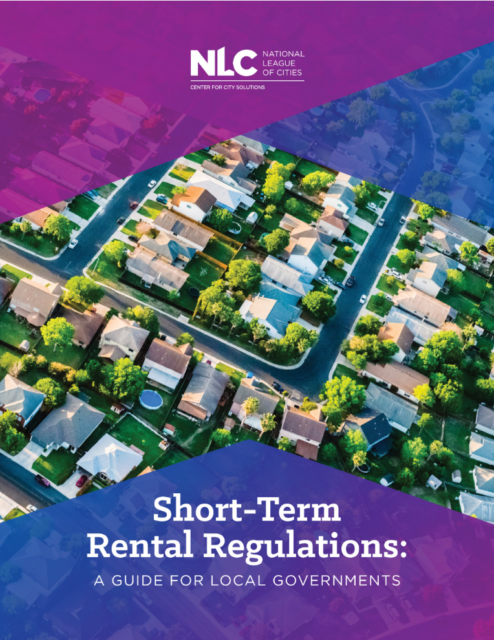Short-term rentals can be a complicated topic for local leaders. They present no shortage of challenges, affecting housing availability and affordability while impacting neighborhood health, safety and wellbeing. On the other hand, short-term rentals can help cities enhance tourism, stimulate economic growth and provide residents with ways to supplement their income. Regardless of the specific challenges they pose, passing simple, effective and enforceable regulations for short-term rentals is crucial for city leaders.
While city responses to short-term rentals have ranged from all-out banning them to implementing no regulations at all, the best solution for each community likely lies somewhere in between. This new guide helps local leaders think about what they need to consider when it comes to this challenging topic.
Download the guide to learn more about how your city can successfully approach, implement and enforce regulations for short-term rentals, to ensure the best outcomes for your community.
One step cities take when establishing or revising their short-term rental ordinances is review peer cities’ regulations for reference. NLC developed the above dashboard to help cities in that process. In this resource, NLC analyzes 60 short-term rental ordinances from cities across the country against 30 indicators and four categories (legal definition, regulation, enforcement and permit). We hope this dashboard will make it easier for cities to identify peer cities and evaluate key components of their ordinances to inform their own efforts when it comes to short-term rentals.

